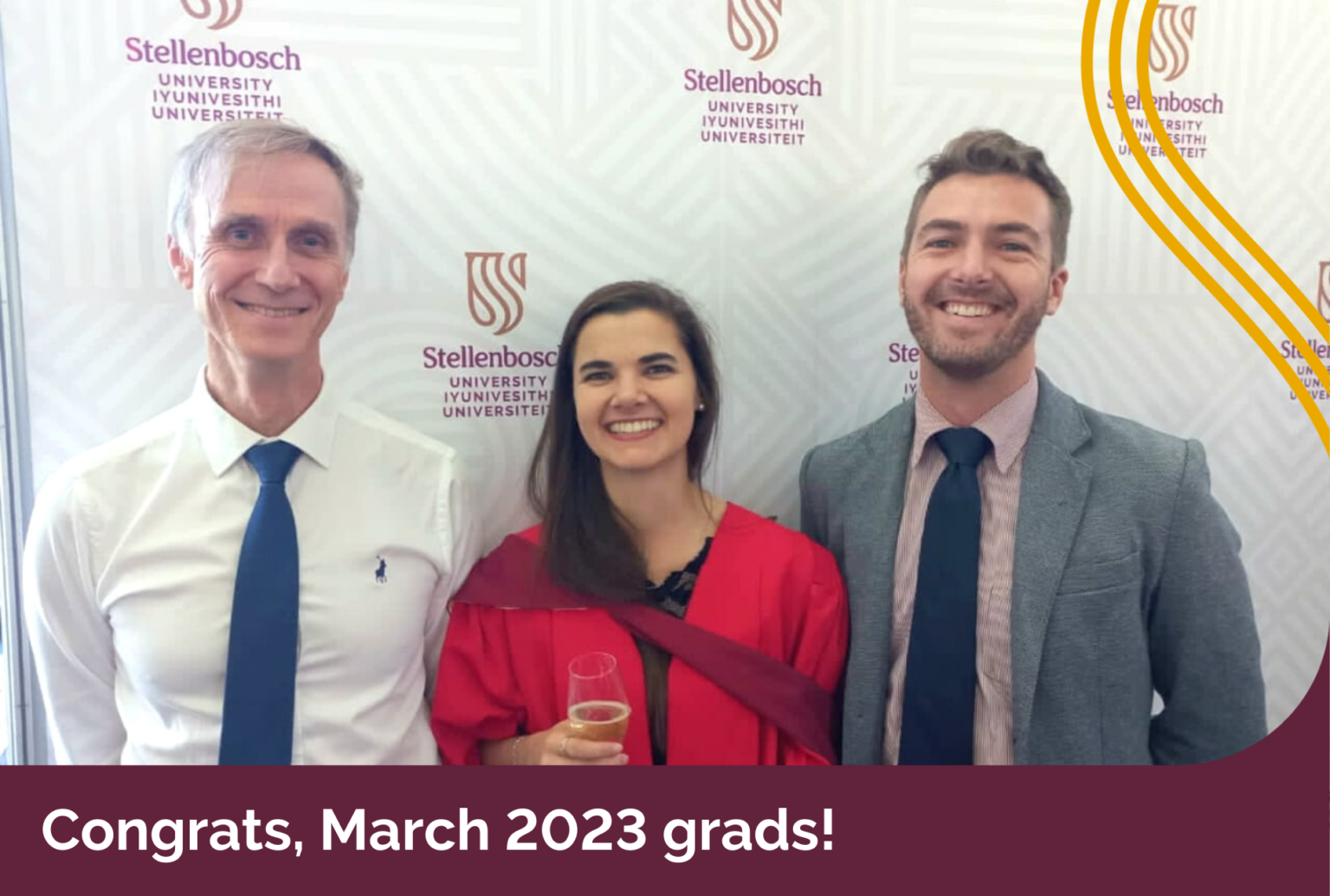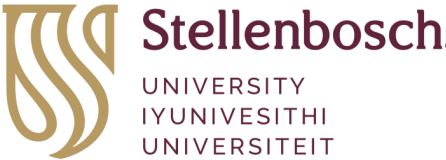
There is nothing quite as momentous to a Stellenbosch University engineering student as Graduation Day, when all their hard work finally pays off. This graduation season is no different, and the Department of Chemical Engineering is bursting with pride over our 31 students who earned their degrees on 30 March. Among the new departmental alumni are two PhD graduates, 14 Master’s graduates, and 15 Bachelor’s graduates.
“Congratulations to all of our March graduates on your fantastic achievements,” says Prof Christie Dorfling, Departmental Chairman. “You are leaving the department well-equipped to pursue your dreams and make a positive contribution to industry and society as a whole. We wish you all the best in your future endeavors.”
Our two PhD graduates are Catharine Bosman, promoted by Profs Robbie Pott and Steven Bradshaw, and Tariro Manhongo, promoted by Profs Annie Chimphango and Patricia Thornley (Director of the Energy and Bioproducts Research Institute at Ashton University, England). Read more about their research topics, as presented at the graduation ceremony, below:
Catharine Bosman:
A thermosiphon photobioreactor for photofermentative hydrogen production by Rhodopseudomonas palustris biological hydrogen production has been gaining attention as a route to hydrogen production from waste streams, leading to the development of more cost-effective and environmentally benign systems. By using solar radiation to generate temperature differentials, the novel thermosiphon photobioreactor can passively circulate biomass, circumventing the requirement for external energy inputs. This study for the first time demonstrates photofermentative hydrogen production using the bacterium Rhodopseudomonas palustris in a novel thermosiphon photobioreactor with a simulated waste stream. The thermosiphon photobioreactor is the only photobioreactor capable of producing green hydrogen without external energy inputs, while offering a circular economic approach by simultaneously cleaning waste streams.
Tariro Manhongo:
A comparative investigation of the techno-economic feasibility and sustainability of mango waste biorefineries in South Africa: A process modelling approach. This study assesses the economic viability and sustainability of mango waste biorefineries in South Africa. Six scenarios for the co-production of pectin, polyphenols, bioethanol, and bioenergy are evaluated. The production of bioenergy alone or the co-production of bioethanol and bioenergy is not economical. Co-production with pectin and polyphenols improves the economic performance but has an increased environmental impact. Overall, the most lucrative scenario in one or two sustainability categories is not the most attractive from another perspective. Thus, there is a need to establish trade-offs between the pillars of sustainability when selecting biorefinery options for implementation.
Main image: Just graduated! Dr Catharine Bosman with her promoters, Profs Steven Bradshaw and Robbie Pott.



